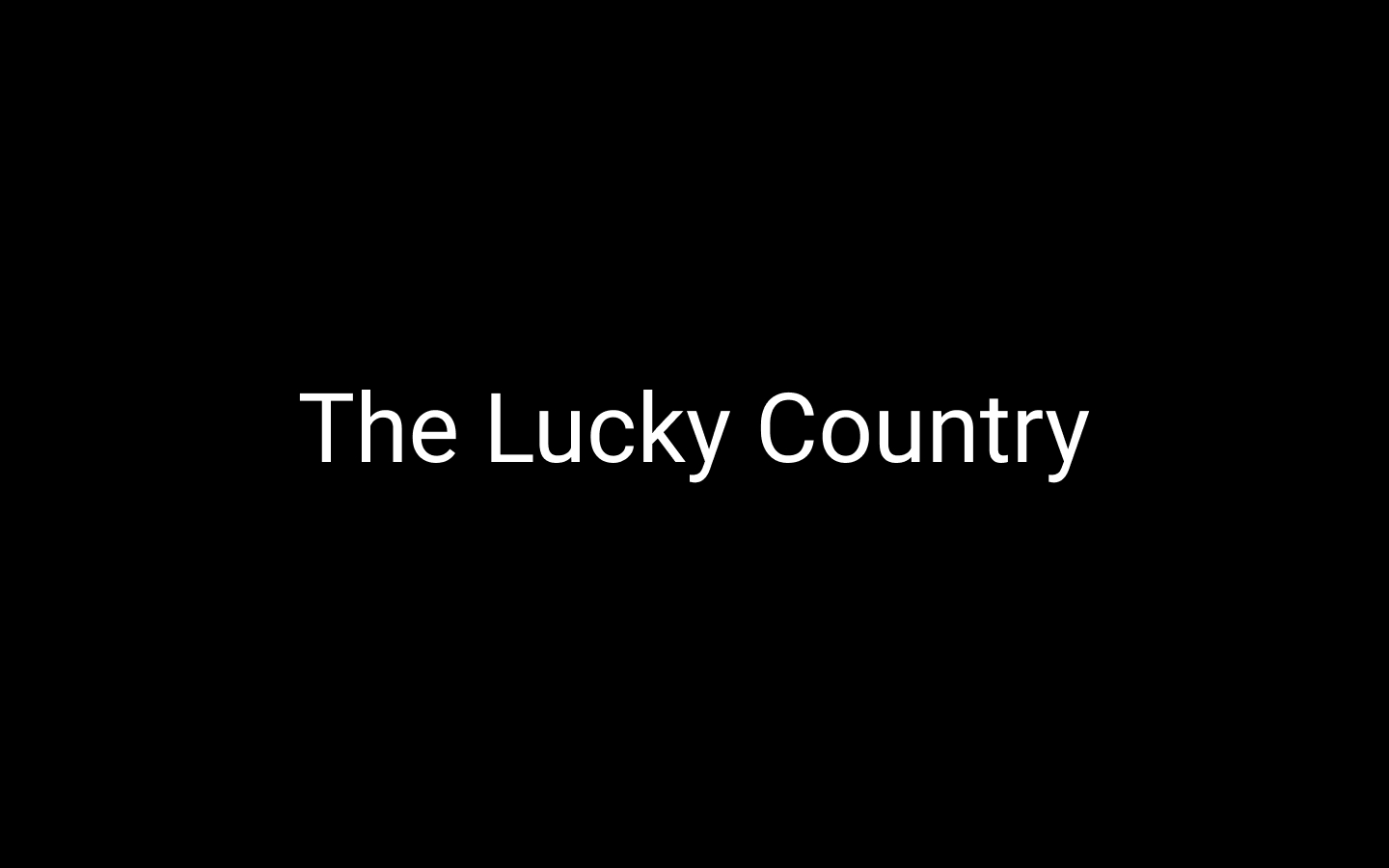Project Description
The producers of The Lucky Country acknowledge the Traditional Custodians of the Lands on which this work was develop on and pay respects to Elders past, present and emerging.
The Lucky Country is a text based digital artwork examining Australia's collective views of our First Nations and multicultural communities through the sentiments of those elected to represent us. In doing so it does not seek to highlight a political divide nor elevate one party above another (all quotes appear unattributed) but establish whether there exists an overall societal discourse and look at how this has changed over the years. Through this, The Lucky Country examines whether Australia's luck and prosperity are endeared to all who seek it.
The Lucky Country is a text based digital artwork examining Australia's collective views of our First Nations and multicultural communities through the sentiments of those elected to represent us. In doing so it does not seek to highlight a political divide nor elevate one party above another (all quotes appear unattributed) but establish whether there exists an overall societal discourse and how this has changed over the years. Through this, The Lucky Country examines whether Australia's luck and prosperity are endeared to all who seek it.
'The Lucky Country' is a text based digital artwork examining Australia's collective views of our First Nations and multicultural communities through the sentiments of those elected to represent us. In doing so it does not seek to highlight a political divide nor elevate one party above another (all quotes appear unattributed), but establish whether there exists an overall societal discourse and how this has changed over the years. Through this, 'The Lucky Country' examines whether Australia's luck and prosperity is endeared to all who seek it.


